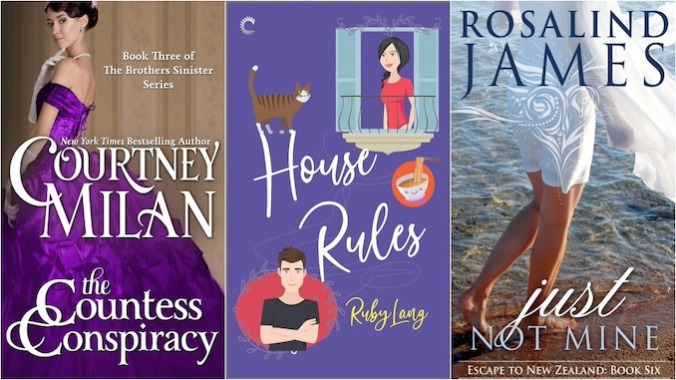What Does Happily Ever After Look Like in Infertility Romance?

I’ll never forget the experience of reading a contemporary romance in which the female lead went into a friends-with-benefits arrangement thinking that all she could offer her love interest was a fun time, since she knew that her diagnosis of endometriosis made her unable to have children. Of course, they fall for one another, and she’s forced to reveal that she can’t give him the big family he wants, but he says let’s make it work anyway… and then, lo and behold, in the epilogue she discovers she is miraculously pregnant.
I’m pretty sure I yelled something akin to “are you fucking KIDDING me” and did the ebook equivalent of throwing the book across the room, which was furiously swiping away while fighting back tears. (The book, for those needing a similar content warning, was Abbi Jimenez’s The Friend Zone.) At that point, I was at least a year into my own infertility journey, in which my husband and I were doing our best to hit the target (so to speak) while I also exhaustively took my temperature at the exact same time every morning, cut out alcohol and other indulgences, and otherwise pretended like I was pregnant even though no matter how hard we tried, every month we faced another blank pregnancy test.
We were seriously considering bringing in the reproductive endocrinologist experts to embark on the very expensive, in-no-way-guaranteed path of in vitro fertilization (IVF). In that moment, reading about a fictional character having an “oopsie” pregnancy as if she were blessed with the kind of fecundity they scared us about in high school sex ed was so destabilizing. It made me feel as if I were the only person with my particular problem; it seemed to drive a wedge between romance characters who got to have a happily ever after (HEA) that was blocked off to us normal readers who had to slog through the cold, harsh reality of potentially never conceiving nor carrying to term a very wanted pregnancy. The thing is, I can completely understand how the author arrived at this conclusion in her book. It’s the impulse to deliver on the ultimate fantasy, obstacles be damned.
When I initially pitched this piece, I was convinced that this book was the rule rather than the exception, that this was a case of the usually progressive romance genre stuck in a formulaic narrative arc. That’s the issue in infertility stories across media, unfortunately; despite establishing at the start that there is a biological issue with sperm meeting egg, or with carrying a pregnancy to term, the resolution almost always tends more toward a magical “fix”: the medical issue or injury mysteriously reversed; the reveal that it wasn’t the wife who was infertile all this time, but the ex-husband; the body doing what we’ve been told it’s “supposed” to do, even if it takes years longer than predicted. Someone on Reddit described this type of ending as “baby ever after,” and wow, talk about a heart punch.
-

-

-

-

-

-

-

-

-

-

-

-

-

-

-

-

-

-

-

-

-

-

-

-

-

-

-

-

-

-

-

-

-

-

-

-

-

-

-

-








































